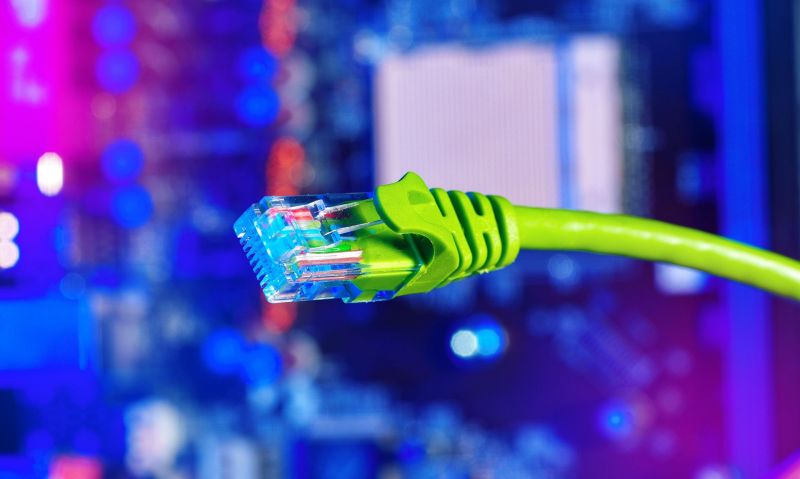
Those living in rural areas depend on broadband access for health care, education and remote work.
More than 1 million veterans could lose discounted internet service because a federal assistance program is running out of money. They are among nearly 23 million U.S. households that receive a $30 to $75 reduction in their monthly bill through the Federal Communication Commission’s (FCC) Affordable Connectivity Program. This financial help often determines whether these families can afford internet service.
“Cost is one of the single biggest barriers to having the internet,” says Amy Huffman, policy director for the National Digital Inclusion Alliance (NDIA). But unless Congress steps up, funding for the Affordable Connectivity Program will run out by May. “There’s no sugarcoating how painful this will be,” Huffman says. “More than 22 million households will have to choose between internet and groceries, internet and medicine, internet and gas. It’s heartbreaking to think about going back to that.”
Legislation introduced in both houses of Congress in January could provide an additional $7 billion in funding and extend the internet financial aid program through the end of the year, Huffman says. But prospects for passage of this short-term extension are uncertain given Congress’ struggles to agree on other funding measures. And because funding is dwindling, the Affordable Connectivity Program will stop enrolling new households this week. “We are fighting for the continuation of the program while simultaneously preparing our community to support consumers in the case the program ends,” Huffman says of the libraries, schools, faith-based organizations and other groups that belong to the National Digital Inclusion Alliance.
The American Legion’s National Executive Committee passed Resolution No. 1 in May 2021, calling on federal agencies to prioritize broadband expansion in rural areas – home to more than 5.6 million former servicemembers. High-speed internet access is particularly important for veterans living in rural areas because they depend on the technology for health care, education and other needs. More than half have at least one service-connected health issue. They also are more likely to be dealing with diabetes, high blood pressure and heart conditions, according to VA.
Lack of broadband access also hampers veterans access to online education, training and their ability to work remotely. And it affects more than 1.1 million veteran-owned business in rural America by restricting their access to markets, financing, grants and supplies, according to The American Legion.
The need to expand rural high-speed internet service became even more acute as the COVID-19 pandemic forced medical providers to replace in-person appointments with telehealth visits, universities to switch to online classes and millions of people to trade their office jobs for telework. VA telehealth visits grew more than 600% between March 2020 and March 2021 alone and demand remains high even as the pandemic subsides. The agency logged nearly 3 million telehealth visits with rural veterans in fiscal 2023. Yet as many as 6% of rural veterans who are enrolled in VA health care lack access to internet capable of supporting support telehealth services, according to the agency.
The bipartisan Infrastructure Investment and Jobs Act, signed into law in November 2021, allocated $42.5 billion toward rural broadband deployment as part of the newly created Broadband Equity and Deployment program, Huffman says. The results of this effort to build the physical internet infrastructure should begin to appear in the next few years. Meanwhile, another $2.7 billion was allocated to making sure people have the skills and equipment to use the internet once they have broadband access, Huffman says.
The Infrastructure Act also created the FCC’s Affordable Connectivity Program. In addition to helping reduce the cost of home internet service, the program provides up to $100 toward the purchase of computer equipment. Households that include someone participating in a certain veterans pension and survivors benefit programs qualify for the financial assistance, according to the FCC.
In 2022, the FCC and Veterans Benefits Administration streamlined the eligibility verification process, making it easier for veterans to take advantage of the Affordable Connectivity Program, according to the FCC. It’s been wildly successful. By early December 2023, the program was providing more than 960,000 veterans and survivors help with their monthly internet bills. That number continues to increase. And rural residents have enrolled in the program at higher rates than the urban counterparts, which should help spur development of more rural internet access, according to the FCC.
Unfortunately, the Affordable Connectivity Program ran out of money sooner than anticipated and the legislation introduced in January is considered a short-term solution that provides Congress and the FCC time to come up with a permanent way of funding lower-cost internet service for those in need, Huffman says. The prospect of losing even this temporary financial assistance keeps her up at night. “I’ve lost a lot of sleep over the last year,” Huffman says. “Before the pandemic, you might get away without having internet access. But not now.”
- Veterans Benefits

